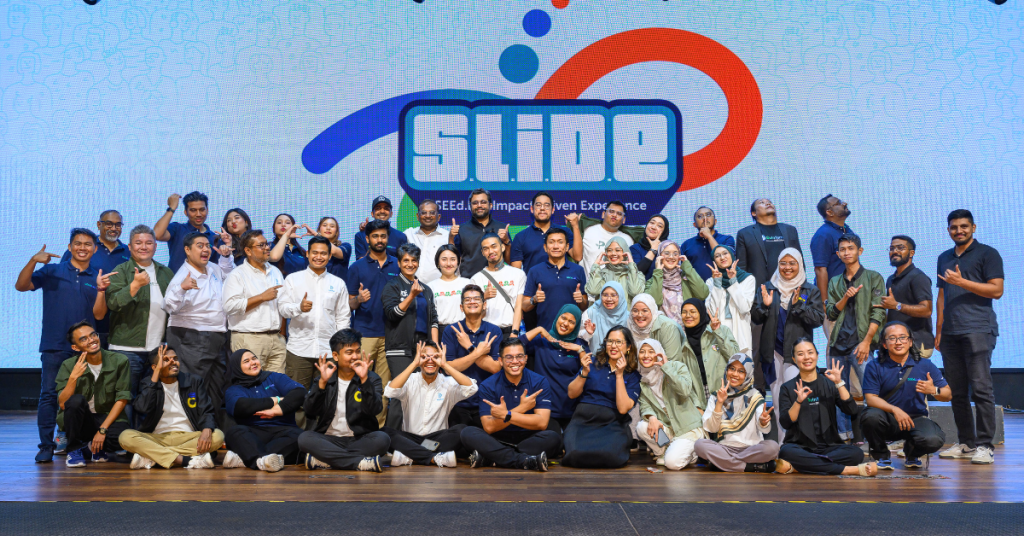Skolafund is a digital platform that aids in crowdfunding higher education for students from low to middle income families. Not only does it provide a platform where students can request for funds, but it also filters and verifies the application.
It’s a trusted platform for education crowdfunding due to its transparency regarding financial transactions and the students’ progress reports to the sponsors.
Back in February 2017, Skolafund successfully fundraised on the Ata Plus Equity Crowdfunding (ECF) platform, which has a track record of funding social enterprises.
On 9 October 2019, it was announced that the impact enterprise had been completely acquired by one of Asia’s biggest donation crowdfunding platforms. This makes it the first ECF exit in Malaysia, and its acquisition also proves that impact enterprises are worth investing in.
According to Ata Plus, this deal gives investors in the ECF round a 10% return on their investments, as well as “extraordinary” social impact returns.
An Impressive Growth
In April 2015, Skolafund began its 4-month Alpha stage. In that duration, the platform raised almost RM25,000 for 6 students, funded by 125 members of the community.
To date, RM1.6 million worth of scholarships has been crowdsourced on Skolafund’s platform, benefitting 592 students from less privileged backgrounds.

It also has 29,000 registered donors, with 11,119 of them actively contributing in a campaign. Thus far, 350 campaigns have been launched and 189 of them have been 100% funded.
Through this acquisition, Skolafund’s platform will be merged into the acquirer’s regional platform, which will strengthen the total offering.
Tengku Syamil, co-founder and CEO of Skolafund, said, “With this significant development, we are on a sounder footing to continue serving the disadvantaged in our communities, whether through aid on education, or other ways like medical and humanitarian assistance. This also means we can reach more people and be more accessible across Southeast Asia.”
What’s Next For Skolafund?
While Skolafund and Ata Plus declined to reveal the acquiring party due to an agreement, we reached out to Tengku Syamil to learn more about what this exit means for Skolafund.
Besides Skolafund, Tengku Syamil also founded Kitafund, a digital platform for medical and humanitarian crowdfunding.

While the two have been operating as individual platforms so far, he told Vulcan Post that his team plans to merge the two platforms to have a single crowdfunding platform for medical, education, and other social causes.
They also plan to make Kitafund the main platform, as the name is more generic.
We then asked him for his thoughts on the common misconception that impact enterprises are not worth investing in. He believes this is because traditionally, business and socially impactful work have always been separated.
“The idea of marrying social impact and business is relatively new and we don’t have much case studies of social enterprises that bring financial returns to investors,” he said.
“This makes impact startups unattractive to mainstream investors. I think with more success stories, more investors will start to take chances on impact startups.”
Currently, he said that impact startups are mainly funded by a very niche group of investors that care not only about financial returns, but social impact as well.
He believes that Malaysia will see more similar success stories in the future, so long as these niche investors keep on backing social impact startups with sound business models.

“Social entrepreneurs also need to do their part in working hard and making sure they have a working business model, and constantly working to improve the business side of things to be more attractive to impact investors,” he stated.
He hopes Skolafund’s ECF exit will inspire more wealthy individuals and firms to fund other impact startups. “I also hope this will motivate others, especially the younger ones, to act on their socially impactful ideas,” he said.
On the other hand, Tengku Syamil also added, “A better funding/investment ecosystem/network for impact startups [is needed] so founders know who they should/can approach for funding relative to the stage of their startup, locally and abroad.”
- You can read about Kitafund here.
Featured Image Credit: Ata Plus / Skolafund














